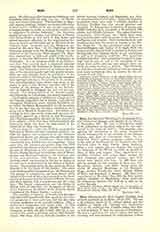

Boso, first Bishop of Merseburg, in the present Prussian Province of Saxony, and Apostle of the Wends, d. November, 970. He was a Benedictine monk of St. Emmeram in Ratisbon whence he was summoned to the court of Otto I. The emperor, considering the conversion of the lately subjugated Wends indispensable to the security of the German Empire, sent Boso to Christianize them. In the beginning Boso’s mission appeared useless, owing to the hate of the Wends for the Germans who had deprived them of their liberty. Boso, however, being a true apostle, did not despair, but studied the language of the Wends in order to preach to them in their own tongue. They appreciated the unselfish devotion with which Boso worked for their temporal and spiritual welfare, and their hatred soon turned into love. In 968 Boso was able to provide for the creation of three new sees, Merseburg, Meissen, and Zeitz. Being given his choice he selected Merseburg as his bishopric; Hugo, another Benedictine monk, became Bishop of Zeitz, and Burchard, of Meissen. All three were consecrated on Christmas Day, 968, by their metropolitan, Adalbert of Magdeburg. Boso continued his missionary labors, but died on a visit to his native Bavaria.
MICHAEL OTT

